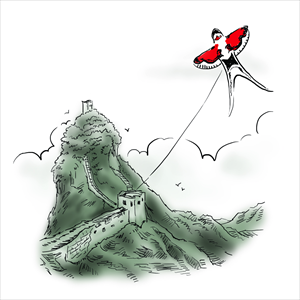Debunking ten misconceptions of the ideal of the Chinese dream

As the ruling ideology of China's new leadership, the Chinese dream has drawn worldwide attention. However, following this heightened attention have come a raft of interpretations and appeals, some of which are misconceptions.
Misconception one: Chinese dream is equal to China's dream.
President Xi Jinping has elaborated the Chinese dream, stressing its essence is the trinity of the fulfillment of Chinese people, the revival of the Chinese nation and the prosperity of the country.
But under the influence of a Western ethos, some people, intentionally or unintentionally, start to oppose the people with the country, claiming that the Chinese dream is just "China's dream," and pursuing the dream will be at the cost of the interests of Chinese people. In fact, these opinions are misinterpretations of the terms "Chinese" and "dream."
Misconception two: Chinese dream will replace the American dream.
In the new era of sustainable development, the American dream and European dreams are all fading away respectively because of the massive consumption of resources and the European debt crisis.
Under this circumstance, the introduction of the Chinese dream is very likely to be overly magnified as China's effort to increase its soft power. Especially when the Sino-US relationship is wrongly illustrated as a second-power and first-power relationship, such concerns are raised that the Chinese dream will replace the American dream, which in fact is a misunderstanding of the inclusive Chinese culture.
Misconception three: Chinese dream is just a new form of utopia.
Although positive in English, utopia is usually depicted as a daydream in Chinese. Some foreigners are trying to slander the Chinese dream as spiritual opium, which will cover social conflicts and hypnotize Chinese people to be less reform-minded. However, the Chinese dream is not a spiritual consolation, but an integration of ideals and realities.
Misconception four: Chinese dream signifies China's abandonment of the communist ideal.
The keen eye of overseas media is also focused on the link between the Chinese dream and China's State system, speculating that China is orienting itself to its own situation and giving up on the communist ideal. However, China is a socialist country led by the Party. The Chinese dream doesn't exclude communist ideas, but strives to convey common prosperity of the country and beyond its border to all nations.
Misconception five: Chinese dream does not include reform through trial and error.
It is conjectured that the Chinese dream indicates a U-turn of the Chinese government to become more concentrated on the top-level design. Actually, a down-to-earth Chinese dream does not reject the practice of reform and opening-up. On the contrary, it renews such vows.
Misconception six: Chinese dream is just a dream of constitutionalism, of human rights or of democracy.
It is reasonable that different people are eager to give different interpretations of the Chinese dream based on their own desires. The Chinese dream accommodates all kinds of legitimate, reasonable and fair voices.
However, if the general "dream" was excessively emphasized on some specific "dreams," such as constitutionalism, human rights or democracy, this kind of interpretation would oversimplify it.
Misconception seven: Chinese dream is just a dream of modernization.
Modernization has been the dream of the Chinese nation since 1840. But this does not justify the fantasy of fully Westernizing Chinese society. In fact, modernization alone is not enough to summarize the dramatic changes that are happening in China.
Misconception eight: Chinese dream is just a dream of rejuvenation.
President Xi has clarified that the rejuvenation of Chinese nation is the Chinese dream right now. Unfortunately, Xi's explanation has been reversed by some neighboring countries on purpose that the Chinese dream is intended to revive the heyday of ancient China, or even to bring the abandoned tributary system back to life. This kind of misinterpretation not only incurs unnecessary misgivings, but also aids and abets some people's attempt to equate the Chinese dream with the "China threat."
Misconception nine: Chinese dream is just a dream of China's rise.
China's rise, an outdated Western term in the context of the current international system, is not the equivalent of the Chinese dream. In fact, the significance of the Chinese dream has surpassed that of China's rise, extending the vision from domestic economic construction to a change of focus in China's confidence to advance socialism with Chinese characteristics.
Misconception ten: Chinese dream is the incarnation of Chinese liberal nationalism.
Since the Chinese dream is carried forward in a top-down manner, some overseas media have defamed it as China's "new nationalism."
Actually, the Chinese dream is so inclusive that it will be conducive to other countries, especially developing countries, to help them realize their own dreams.
The author is a distinguished professor at the Renmin University of China and senior research fellow at the Charhar Institute. opinion@globaltimes.com.cn